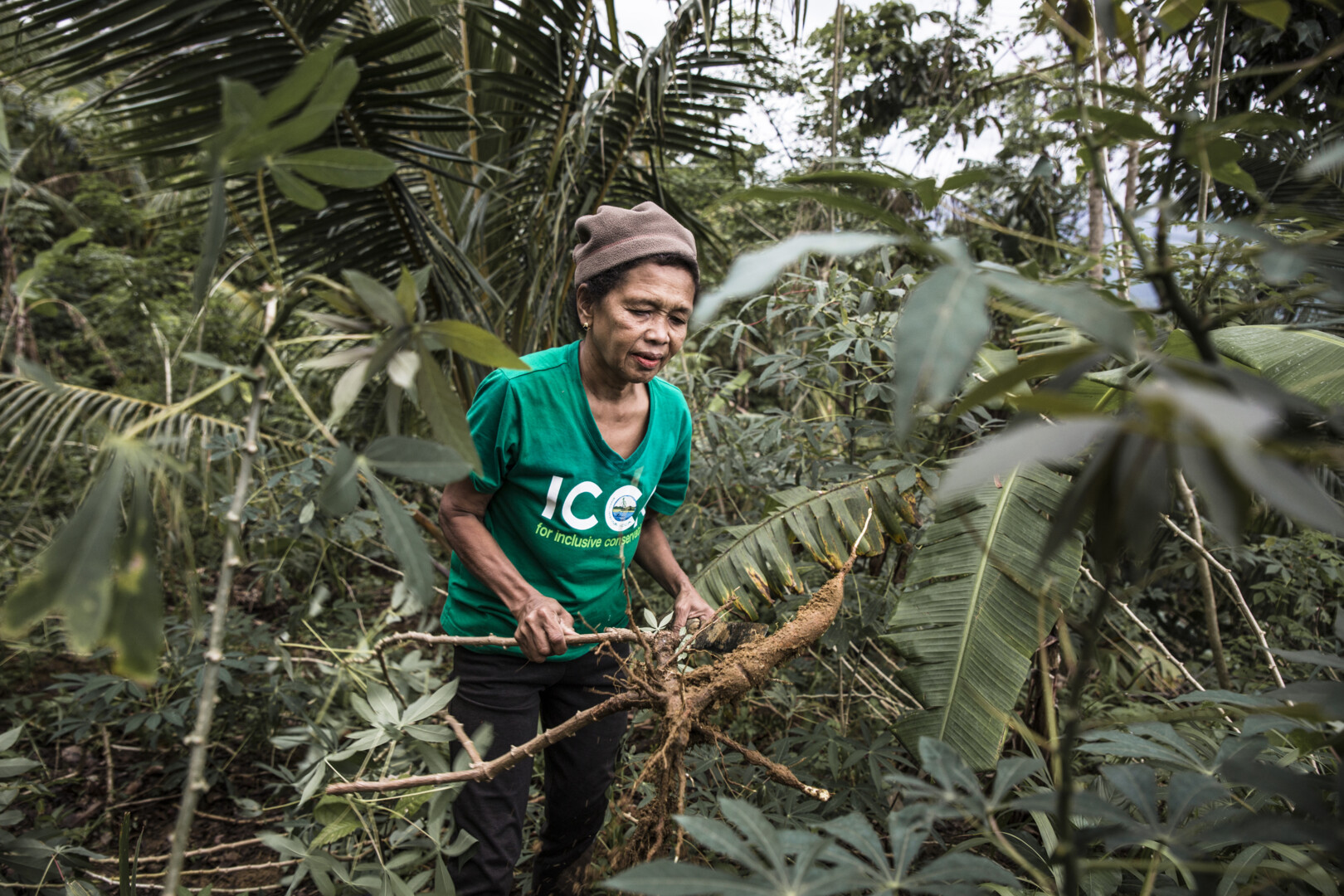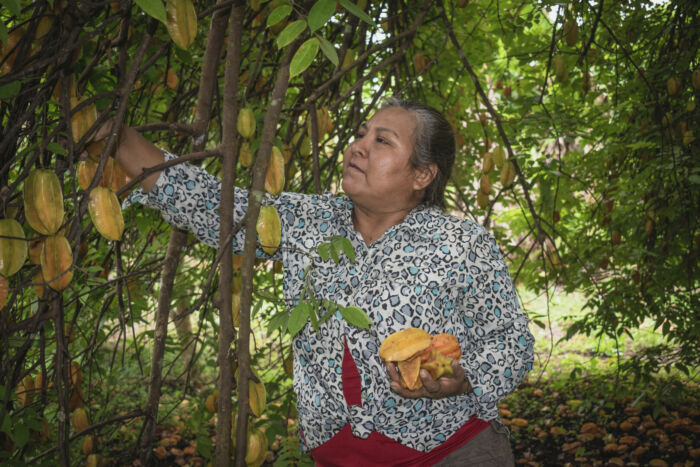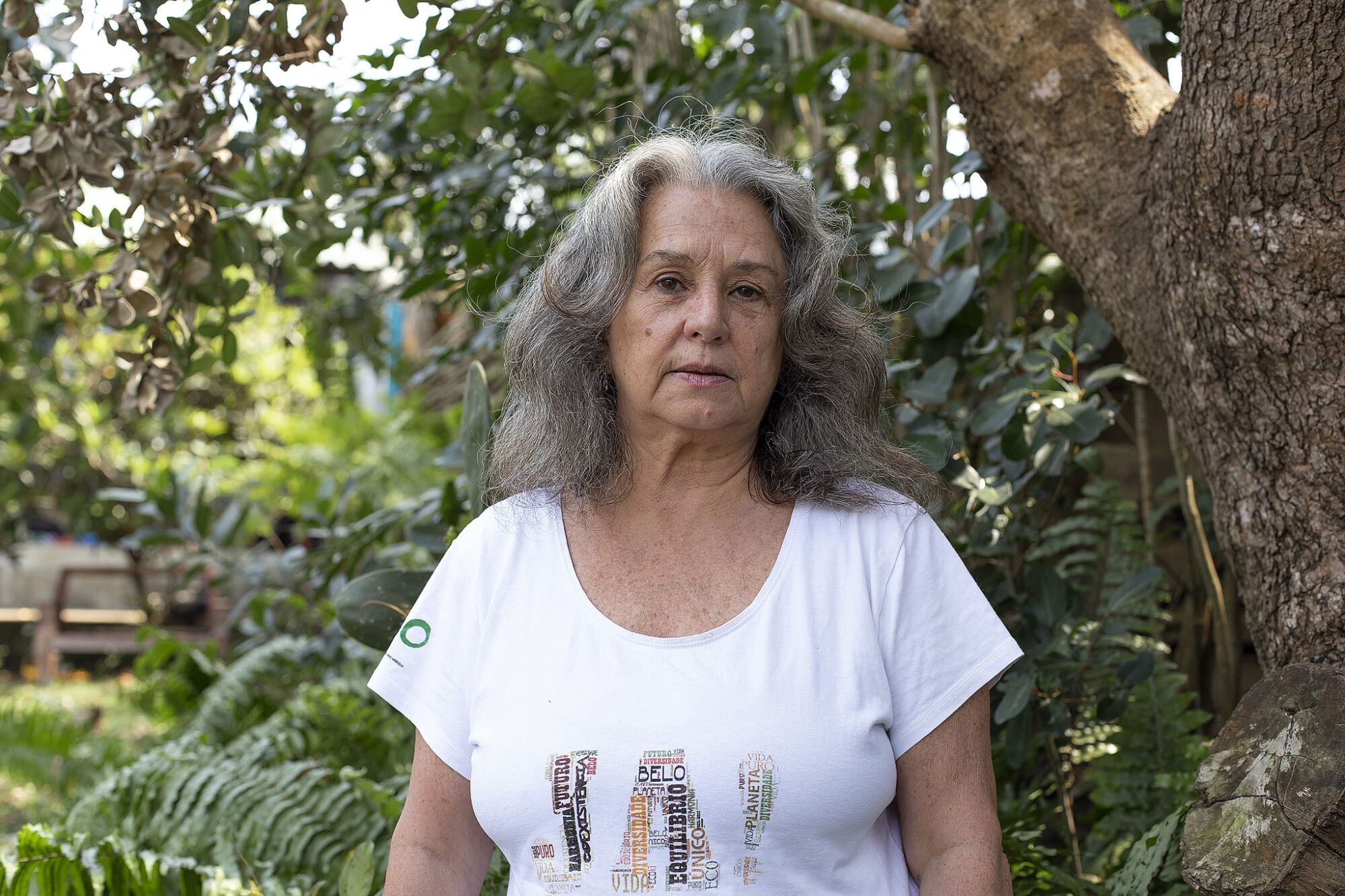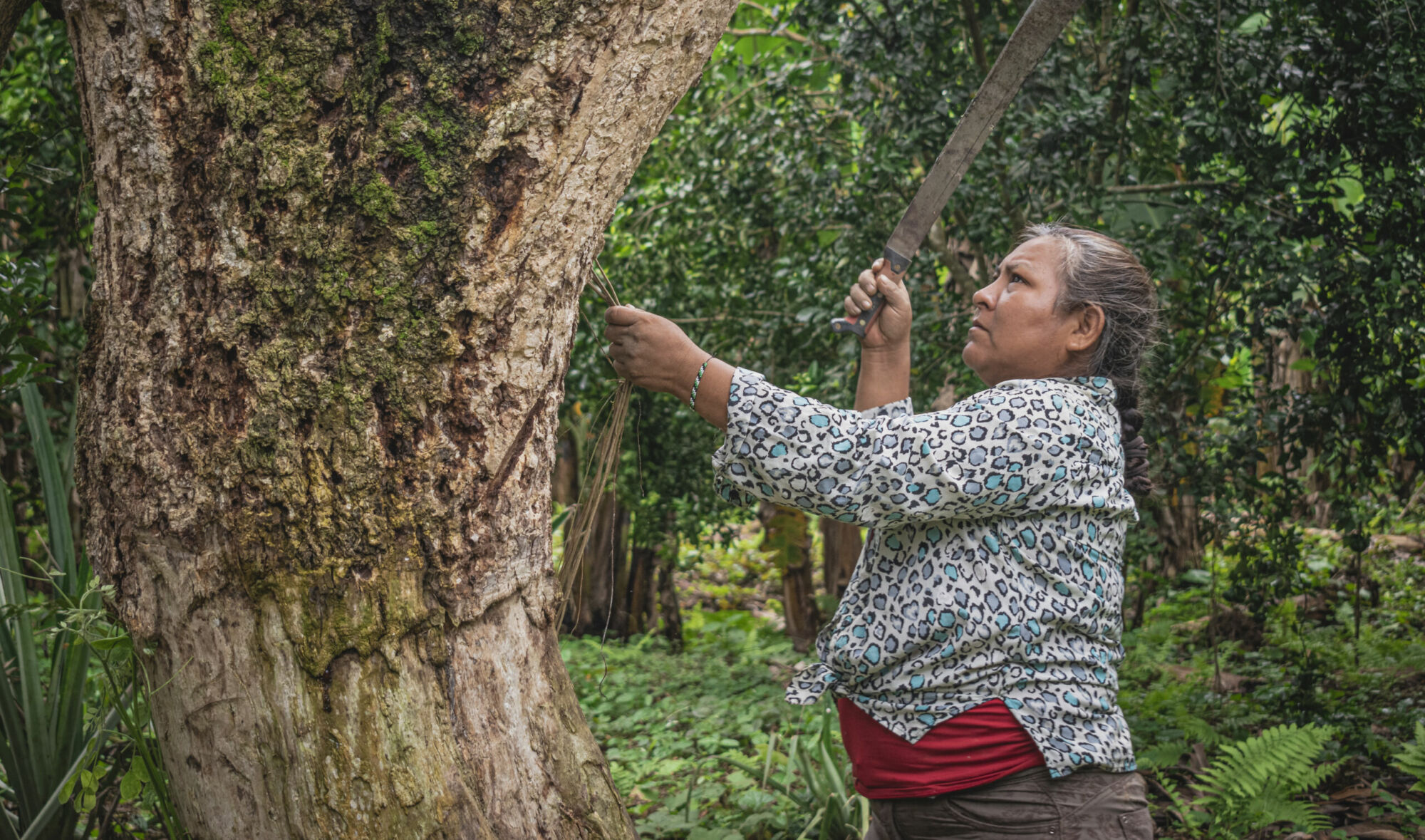She is a leader of the Dumagat-Remontado indigenous group, who since time immemorial have lived in the rainforests and river basins of the Sierra Madre mountain range, which encompasses hillsides, peaks and valleys. Here and there among the dense vegetation are small clearings with individual houses and vegetable plots. Conchita stands in one such plot among her crops.
“We live a simple, but good, life here. The forest has been a part of my life since I was born,” says Conchita.
But now the culture and livelihoods of the indigenous people is threatened by construction of a dam that will be 60 metres high and supply the 13 million plus residents of the metropolitan region of Manila with 600 million litres of water per day. The Kaliwa dam will only be operational for five years – at the expense of 300 hectares of forest being lost and thousands of families being forced to leave their homes and land. Thousands
more will be living in the risk zone for flooding and other hazards if the dam were to fail or break. Some of the areas that will be affected are nature reserves that are home to many endemic plant and animal species, some of which are endangered. In addition, the indigenous population have burial grounds all around the region, as well as other sacred sites.
That is where we worship, pray and go for healing.
Conchita feels that the government do not respect the religion of the indigenous peoples, and she is one of the most active leaders in the Stop the Dam coalition, which is trying to halt the construction project. The coalition is supported by We Effect.
“The government views the forest as something they can exploit. To us, the forest is sacred. My grandparents taught me that we have inherited the forest’s resources from our ancestors. It is my duty to protect the forest,” says Conchita.
The Philippines have signed up to the UN Declaration on the Rights of Indigenous Peoples and the ILO’s Indigenous and Tribal Peoples Convention, but have yet to ratify them. However, there are many national laws that guarantee the right of indigenous peoples to live in their ancestral domains. Stop the Dam feels that the authorities have breached several of these laws and will be pursuing the case in court.
“I believe that we can win the fight through legal processes and by uniting with other groups. Together we are strong,” says Conchita.
Meet Conchita in our video:



